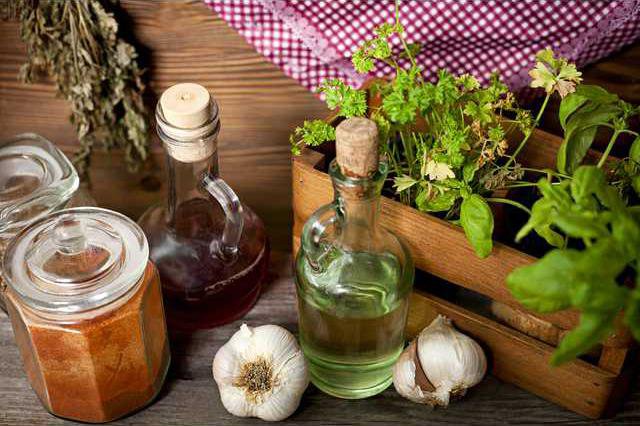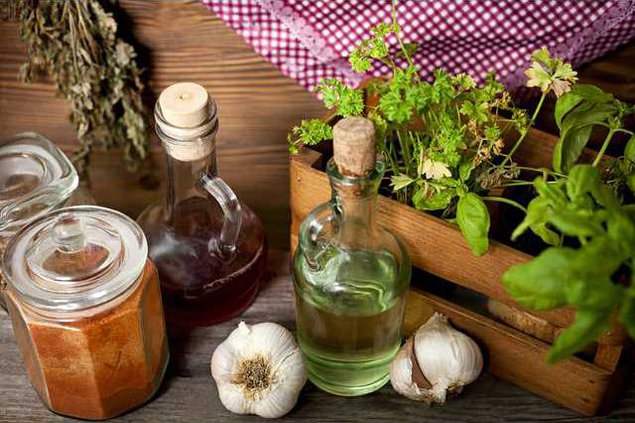If your employer was running low on funds, would you accept a shaker of salt instead of a pay check? Hed deduct the proper amount for taxes, of course.
Chances are, you would rather have cash and benefits.
Perhaps unbeknownst to you, your kitchen cabinet is full of treasures. Salt, spices and other seasonings have historically been extremely valuable commodities. They were used as currency for centuries. The word salary is even derived from the term salt money; the allowance given to Roman soldiers to buy salt.
Remember Christopher Columbus? He was looking for a faster spice trade route when he came upon the Americas.
The earth was explored, places discovered and palates expanded as herbs and spices made their way from Asia and the Middle East onto plates of nobles around the world.
Though we may balk at the cost of herbs and spices on supermarket shelves, historically speaking our cost is very low.
Kings and conquistadors were driven to secure strongholds on spice trades because of one thing: the demand for flavor. Can you imagine your favorite foods without salt, freshly ground pepper, cinnamon, chocolate or cumin?
You probably dont have to imagine because if youre an average American adult, you probably get a common cold two to three times per year. Aside from sneezes and sinus pressure, we all have a lot in common during cold season; food just doesnt pack its normal punch. When we cant smell our food, we miss out on nearly all of the tasting sensory experience and our appetite suffers.
As it turns out, when food tastes good, were motivated to eat it.
While this is not revelatory, sometimes when people try to eat healthy, they forget that enjoying their food is important. They try to make healthier choices, but then two weeks and 10 servings of boiled mushy vegetables later they are wondering if healthy eating is worth it.
Delicious food is psychologically satisfying. When we eat a flavorful meal we feel weve realized the value of the food; a good meal is worth the time, money and calories spent on it.
In your efforts to make healthy food choices today and tomorrow, do yourself a favor and eat flavorfully.
Why you should cook with herbs and spices
Cooking with herbs and spices can add flavor richness and complexity as well as health benefits. Herbs and spices and full of bioactive compounds that can improve our health.
For instance, research has shown that ginger can to alleviate nausea during motion sickness, pregnancy and chemotherapy.
Peppermint has been clinically proven to reduce symptoms of irritable bowel syndrome by calming the muscles in the digestive tract.
Cinnamon can lower blood sugar, cholesterol and triglyceride levels in individuals with type 2 diabetes.
Research on herbs, spices and aromatics like garlic and onions is abundant on their concentrated sources of antioxidants, anti-inflammatory, antimicrobial, anti-cancer, anti-viral, cholesterol lowering, organ protecting and immune enhancing properties.
By using herbs and spices regularly we can increase our antioxidant consumption in clinically significant amounts. For example, a half teaspoon of freshly ground cloves has more antioxidants than a half a cup of super-food blueberries.
How to get them
The most economical way to keep herbs on hand is to grow them. As the weather warms up you can do this outside, but you can also do it year round from the convenience of your kitchen window sill.
Begin with a seed or a start from a nursery or grocery store produce section and youll be well on your way. Excess yield can be frozen plain or in oil cubes in ice trays.
Spices that cannot be grown are best purchased in their whole form and ground with a mortar and pestle or grinder, or zested with a microplaner. Some companies are even making ready-to-use herb and spice grinders.
When purchased whole and then ground, the flavors and smells are released from the plant cells closer to the time of consumption. This not only preserves flavor, but nutrients too.
How to use them
Pair roasted vegetables (much tastier than boiled!) such as carrots with thyme, potatoes with rosemary and tomatoes with basil. Add clove to baked goods anywhere youd add cinnamon or nutmeg. Zest nutmeg into oatmeal. Grind oregano into pasta sauce, onto sandwiches, salad dressings and casseroles. Mash basil into pesto and spread on sandwiches and stir into pasta.
Try ginger spiced almonds, Vietnamese summer rolls with fresh basil, mint or cilantro, homemade cilantro salsa, a Caprese salad with basil, cinnamon carrot or applesauce muffins, basil beef thai stir fry.
Use guides to help you explore sets of spices by cuisines and flavor profiles.
The possibilities are endless and anything but bland. Choose nutrient-rich whole foods and dress them up with fresh herbs and spices to savor the flavor of eating right.
For more reading on a plant-powered eating, check out this book.
Chances are, you would rather have cash and benefits.
Perhaps unbeknownst to you, your kitchen cabinet is full of treasures. Salt, spices and other seasonings have historically been extremely valuable commodities. They were used as currency for centuries. The word salary is even derived from the term salt money; the allowance given to Roman soldiers to buy salt.
Remember Christopher Columbus? He was looking for a faster spice trade route when he came upon the Americas.
The earth was explored, places discovered and palates expanded as herbs and spices made their way from Asia and the Middle East onto plates of nobles around the world.
Though we may balk at the cost of herbs and spices on supermarket shelves, historically speaking our cost is very low.
Kings and conquistadors were driven to secure strongholds on spice trades because of one thing: the demand for flavor. Can you imagine your favorite foods without salt, freshly ground pepper, cinnamon, chocolate or cumin?
You probably dont have to imagine because if youre an average American adult, you probably get a common cold two to three times per year. Aside from sneezes and sinus pressure, we all have a lot in common during cold season; food just doesnt pack its normal punch. When we cant smell our food, we miss out on nearly all of the tasting sensory experience and our appetite suffers.
As it turns out, when food tastes good, were motivated to eat it.
While this is not revelatory, sometimes when people try to eat healthy, they forget that enjoying their food is important. They try to make healthier choices, but then two weeks and 10 servings of boiled mushy vegetables later they are wondering if healthy eating is worth it.
Delicious food is psychologically satisfying. When we eat a flavorful meal we feel weve realized the value of the food; a good meal is worth the time, money and calories spent on it.
In your efforts to make healthy food choices today and tomorrow, do yourself a favor and eat flavorfully.
Why you should cook with herbs and spices
Cooking with herbs and spices can add flavor richness and complexity as well as health benefits. Herbs and spices and full of bioactive compounds that can improve our health.
For instance, research has shown that ginger can to alleviate nausea during motion sickness, pregnancy and chemotherapy.
Peppermint has been clinically proven to reduce symptoms of irritable bowel syndrome by calming the muscles in the digestive tract.
Cinnamon can lower blood sugar, cholesterol and triglyceride levels in individuals with type 2 diabetes.
Research on herbs, spices and aromatics like garlic and onions is abundant on their concentrated sources of antioxidants, anti-inflammatory, antimicrobial, anti-cancer, anti-viral, cholesterol lowering, organ protecting and immune enhancing properties.
By using herbs and spices regularly we can increase our antioxidant consumption in clinically significant amounts. For example, a half teaspoon of freshly ground cloves has more antioxidants than a half a cup of super-food blueberries.
How to get them
The most economical way to keep herbs on hand is to grow them. As the weather warms up you can do this outside, but you can also do it year round from the convenience of your kitchen window sill.
Begin with a seed or a start from a nursery or grocery store produce section and youll be well on your way. Excess yield can be frozen plain or in oil cubes in ice trays.
Spices that cannot be grown are best purchased in their whole form and ground with a mortar and pestle or grinder, or zested with a microplaner. Some companies are even making ready-to-use herb and spice grinders.
When purchased whole and then ground, the flavors and smells are released from the plant cells closer to the time of consumption. This not only preserves flavor, but nutrients too.
How to use them
Pair roasted vegetables (much tastier than boiled!) such as carrots with thyme, potatoes with rosemary and tomatoes with basil. Add clove to baked goods anywhere youd add cinnamon or nutmeg. Zest nutmeg into oatmeal. Grind oregano into pasta sauce, onto sandwiches, salad dressings and casseroles. Mash basil into pesto and spread on sandwiches and stir into pasta.
Try ginger spiced almonds, Vietnamese summer rolls with fresh basil, mint or cilantro, homemade cilantro salsa, a Caprese salad with basil, cinnamon carrot or applesauce muffins, basil beef thai stir fry.
Use guides to help you explore sets of spices by cuisines and flavor profiles.
The possibilities are endless and anything but bland. Choose nutrient-rich whole foods and dress them up with fresh herbs and spices to savor the flavor of eating right.
For more reading on a plant-powered eating, check out this book.





